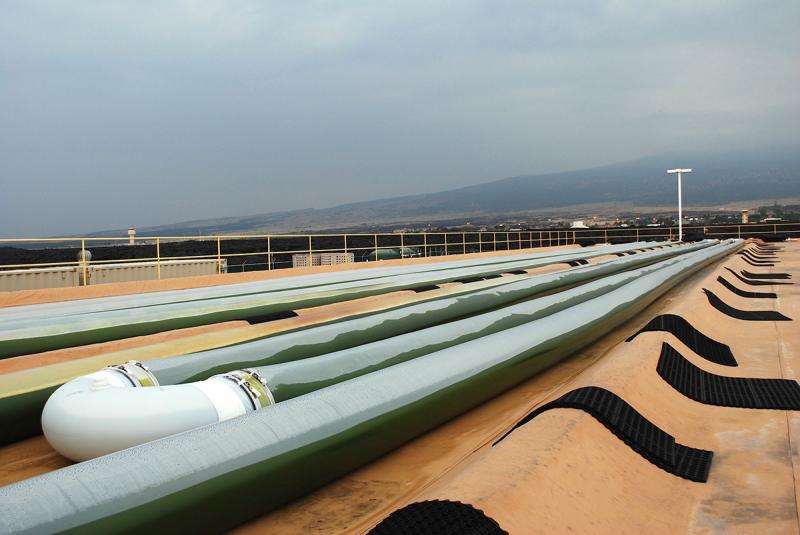Microalgae could play key role in relieving climate warming

Think better living through marine microalgae, as it may become crucial to mitigate atmospheric greenhouse gases, reduce carbon dioxide emissions from commercial agriculture and steady the global climate, according to Cornell-led research published in the March issue of Earth's Future, a journal of the American Geophysical Union.
"We must stabilize Earth's mean global temperature," said lead author Charles H. Greene, professor of earth and atmospheric sciences. "To attain these targets set by our agreements at the Conference of the Parties (COP21) meetings in Paris, we must reduce carbon dioxide emissions to near zero by mid-century and remove carbon dioxide from the atmosphere in this century's latter half."
While some policy analysts and scientists believe that the COP21 agreement climate goals – holding the rise of the mean global temperature to less than 1.5 degrees Celsius – are unachievable, the researchers favor employing microalgae as a key solution.
"We believe these climate goals are attainable, but we must constrain carbon dioxide emissions rapidly and then start removing it from the atmosphere," said Greene.
Although more solar farms, wind turbines and hydro systems are creating fossil-free electricity, Greene reminds us that aircraft and ships still require liquid fuels. In a green way, biofuels made from marine microalgae could wean industrialized society from carbon-based fossil fuels, according to this new report, "Geoengineering, Marine Microalgae and Climate Stabilization in the 21st Century."
To make this biofuel, scientists harvest freshly grown microalgae, remove most of the water, then extract lipids for the fuel. The remaining defatted biomass is a protein-rich and highly nutritious byproduct – one that can be added to animal feeds for domesticated farm animals, like chickens and pigs, or aquaculture feeds for salmon and shrimp.
After consuming the algae-supplemented feeds, for example, chickens produce eggs with three times the omega-3 fatty acids.
Terrestrial plant production for biofuels – such as corn, palm and soy, for example – removes millions of acres of land from food production, even as the world grows more populated.
Microalgae grow faster than terrestrial plants, producing an equal amount of bioenergy or food in less than one-tenth the land area. Bioenergy and food production from marine microalgae can have positive impacts on climate and food security, while avoiding many of the negative environmental consequences associated with terrestrial plant-based options, Greene explained.
By replacing marine microalgae production for conventional, land-based agricultural practices, there will be less carbon dioxide emitted, which could achieve climate stabilization goals, he said.
Greene said significant research and development investments will be essential for the next decade to improve bioenergy and food production.
"As this technology ramps up to globally relevant scales during the coming decades, society's prospects improve for meeting the COP21 climate stabilization targets, while simultaneously achieving energy and food security," he said.
Provided by Cornell University



















